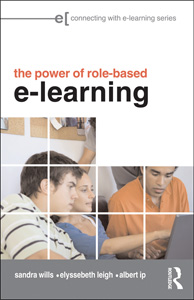what is the problem?
Current role play designers
Current role play designers in universities are operating in isolation. In most cases there are only one or two in each university. They may be supported in part by their university's Educational Development centre but they have not been able to communicate and benefit from interaction with each other.
"This [Carrick proposal] is a valuable document in its own right as it gives me an inkling into who's who in role play construction. If you are planning to establish a community of practice ;-) then please count me in."
John McWilliams, Deakin University - Carrick Teaching Citation 2006
In a case study of role play in the recent AUTC report on Dissemination, Adoption & Adaptation of Project Innovations in Higher Education, Alexander reported the following issues for role play designers:
Workload
...a common experience was the very great time commitment involved in planning, developing, assessing and evaluating the simulation. None of those interviewed mentioned workload allocations which recognised this, and hence the time commitment inevitably encroached upon other aspects of an academic's responsibilities.
Recognition and reward
For some, adoption of the role-play simulations has been a career-limiting move, with at least two of those interviewed failing in bids for promotion or other recognition, attributed at least in part to a less than adequate research output...
Support
There was some evidence of commitment by middle and upper management although it was by no means universal. Although this was to some degree necessary in order to obtain resources needed to start-up and maintain the simulations, it did not appear to be sufficient to ensure the simulations' longevity. In a similar vein, support from the central teaching and learning unit was valued, but again did not ensure the longevity of the simulations.
Policy
There have been few obvious attempts to institutionalise the simulations, although there are signs this might be about to change...
Sustainability
From the evidence gathered in this case study, it would appear that the use of role-play simulations in teaching is essentially the domain of enthusiastic individual (or small groups of) academics. When they leave the department or university, the simulations do not continue, probably because of the significant individual commitment involved." (pp. 103-4)
Or as David Sadler from the UK Higher Education Academy says:
"I think the issue is broader than current role players working in isolation or rather it is the effect of that which is additionally significant. It may be a feature more of the UK with our preoccupation with quality assurance regimes, but where role-players act in isolation there is less possibility of a strategic approach being taken by the Faculty or Department in which the academic is housed. If the role-player were to leave (as has happened twice now with me), the student experience is denied the role-play opportunity if there is not an institutional commitment. In addition, if the experience is one of atomisation, what safeguards are there that a) there is a placing of the role-play at appropriate levels of study i.e. are some role-plays more attuned to the final years of study and some more introductory? b) what safeguards are there that student expectations are not raised by one good experience but there is nothing to satisfy them in a progressive sense because no-one else in the Dept/Faculty is doing it? (email communication to Project Team, 16/7/06)"
With these issues in mind, another key inhibitor to uptake is intellectual property.
New Role Play Designers
Teachers new to role play design find it difficult to see what a role play looks like and this can inhibit uptake. New role play designers are often attracted to the teaching strategy by hearing a presentation or reading a paper by another role play designer (Wills, 2006) yet these vehicles rarely convey the true complexity of the design task and the management skills needed for moderating a role play. New role play designers sometimes flounder and give up after their first attempt especially if there is no mentor to support and encourage them to continue through cycles of evaluation and improvement. Many teachers do not have the confidence to experiment alone with the complexities of an innovative teaching technique.


